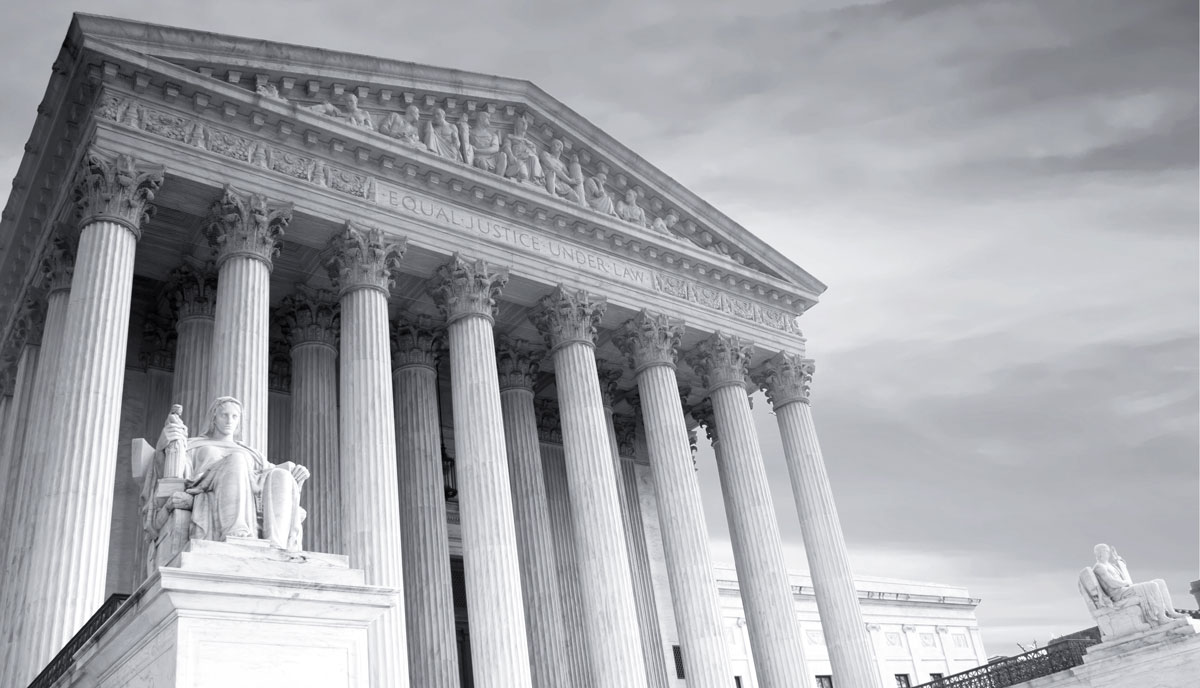Members of the Senate Judiciary Committee are scheduled to vote April 4, 2022, on Ketanji Brown Jackson’s nomination for the Supreme Court. It kicks off a potentially historic week in which a full Senate vote could set course for the nation’s highest court seating it’s first Black female judge.
The elevation of Jackson to the Supreme Court would not change the ideological setup of the bench – which would continue to be split 6-3 in favor of conservative justices.
Nonetheless, it would be an important landmark in the history of the Court – of the 115 justices on the Supreme Court since it was established in 1789, 108 have been white men.
Race featured in Jackson’s confirmation process; so too attempts to define her “judicial philosophy.” The Conversation has turned to legal scholars to explain the meaning of Jackson’s potential ascension to the court.
On the shoulders of pioneers
Jackson, if she wins confirmation at the next stage, a vote by the full Senate, will have broken through the ultimate glass ceiling in terms of legal careers. She would have done so on the shoulders of pioneering Black female judges.
University of Florida’s Sharon D. Wright Austin notes, even now, “relatively few Black women are judges at the state or federal level” – which makes the achievement of those who have made it to this level all the more remarkable.
Of the judges highlighted by Austin, there is Judge Jane Bolin, who became the country’s first Black female judge in 1939, serving as a domestic relations court judge in New York for almost four decades. Later, in 1961, Constance Baker Motley became the first Black woman to argue a case before the Supreme Court. In all she argued 10 cases before the Court, winning nine of them. Meanwhile, Judge Julia Cooper Mack is noted as the first Black woman to sit on a federal appellate court, being appointed in 1975 and serving 14 years on the bench.
These women are to be celebrated and remembered. As Wright Austin writes: “Representation matters: It is easier for young girls of color to aspire to reach their highest goals when they see others who have done so before them, in the same way that women like Jane Bolin, Constance Baker Motley and Julia Cooper Mack encouraged Ketanji Brown Jackson to reach hers.
Echoes of the past
The fact that a Black female Supreme Court justice is long overdue is testament to the slow progress the U.S. has made toward racial – and gender – equality.
Margaret Russell, a constitutional law professor from Santa Clara University, saw signs of this lack of advancement during parts of Jackson’s Senate Judiciary Committee confirmation hearings.
Questions directed at the would-be Supreme Court justice were, according to Russell, tantamount to race-baiting. They also sounded eerily similar to criticisms that then-Supreme Court nominee Thurgood Marshall, the first Black American nominee to the court, faced in his own confirmation hearings in 1967.
Both Jackson now, and Marshall then, stood accused by senators of being soft on crime and were asked about how they intended to bring race into their legal decisions. “Are you prejudiced against white people in the South?” Marshall was asked by a known white supremacist senator. Similarly, Jackson was asked during her confirmation hearings if she had a “hidden agenda” to incorporate critical race theory, which holds that racism is structural in nature rather than expressed solely through personal bias, into the legal system.
“I find it striking,” Russell writes, “that race has surfaced in such a major way in these hearings, more than five decades after Marshall’s nomination. In some respects, there has been progress on racial equity in the U.S., but aspects of these hearings demonstrate that too much remains the same.”
What Jackson would bring to the Supreme Court
Jackson’s potentially historic achievement of becoming the first Black female Supreme Court justice may distract from the fact she is also eminently qualified to sit on the highest court in her own rights.
Alexis Karteron of Rutgers University-Newark notes that the Harvard law-trained Jackson went on to clerk for Stephen Breyer, the retiring justice she is set to replace. She has served on the U.S. Sentencing Commission as well as acting as both a trial court and appellate judge.
[Over 150,000 readers rely on The Conversation’s newsletters to understand the world. Sign up today.]
Jackson is also the first former criminal defense attorney to be nominated to the Supreme Court since Marshall. This puts Jackson in a unique position on the bench. Karteron writes that having served as a public defender “will help [Jackson] understand the very real human toll of our criminal justice system. … The criminal justice system takes an enormous toll on both the people in the system and their loved ones. I believe having a Supreme Court justice who is familiar with that is incredibly valuable.”
Matt Williams, Breaking News Editor, The Conversation
This article is republished from The Conversation under a Creative Commons license. Read the original article.
Related Articles:
- What if “Non-human Biologics” are Watching?
- ‘Most Significant Charges Yet’: Trump Indicted for Trying to Overturn 2020 Election
- But what am I?’ Pee-wee Herman creator and star, Paul Reubens dead at 70
- The Congressional Hearing On UFOs Confirmed the Existence of Aliens? Maybe
- The Earthly Frontier: Building a Sustainable Future at Home
Find books on Music, Movies & Entertainment and many other topics at Bookshop.org
Lynxotic may receive a small commission based on any purchases made by following links from this page
